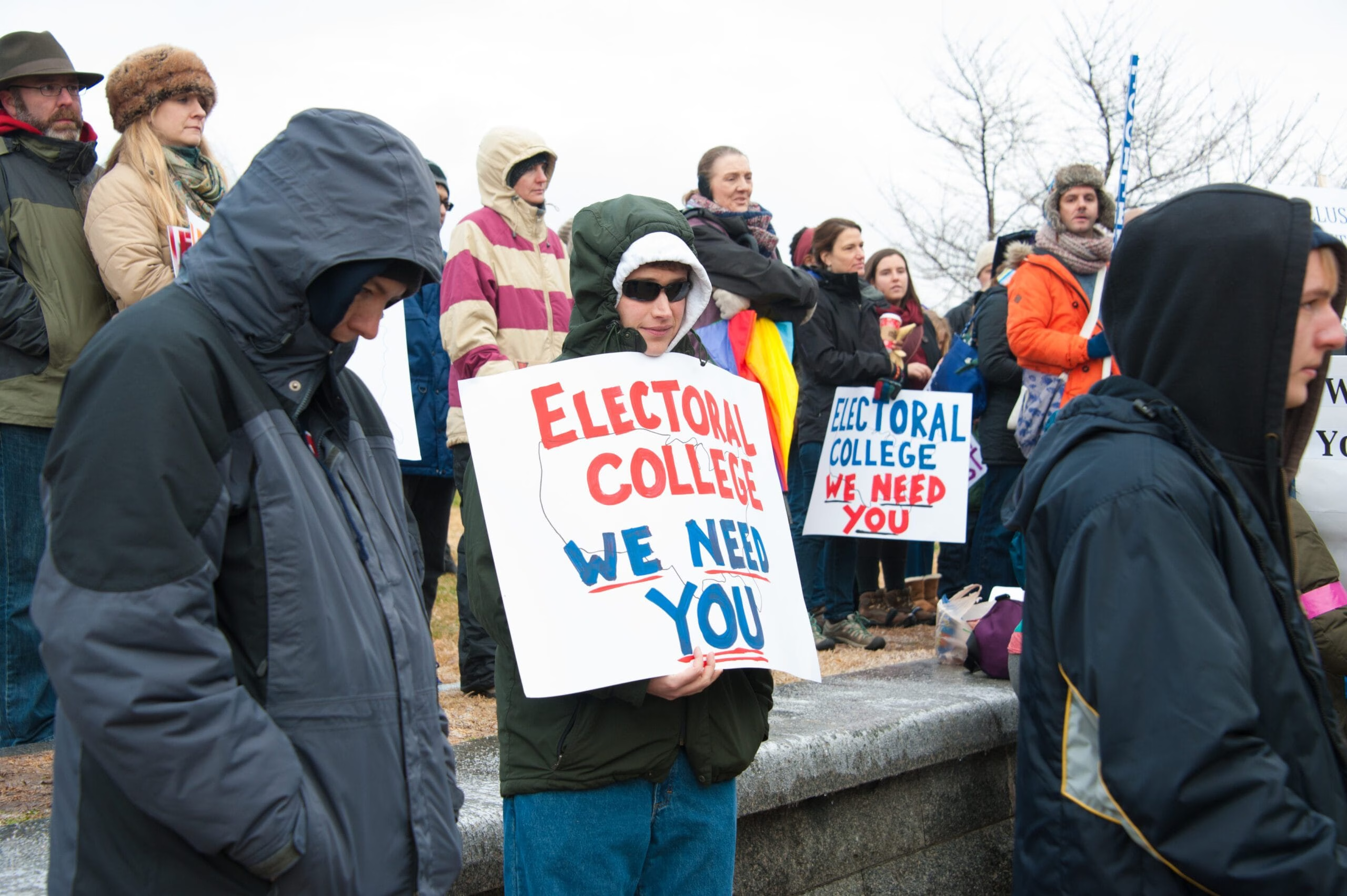There was a brief moment in the past couple of weeks where it seemed that the 2024 presidential election would be decided not in Pennsylvania, Arizona, or Nevada, but rather in Nebraska.
The overwhelmingly red state is one of only two in the union that portions out its electoral votes by congressional district. Supporters of Donald Trump attempted to reverse this practice, which would have virtually guaranteed that the single electoral vote from Nebraska’s blue-leaning second congressional district would go to the Republican nominee.
If the election is close, the difference of one electoral vote could tilt the results of the presidential contest toward Trump—or it could produce a tie that would be resolved by the House of Representatives, almost assuredly in the GOP’s favor.
If that all sounds byzantine, it’s because it is. When I speak with people from other countries about US democracy, the Electoral College is inevitably the most challenging part to explain. Our indirect method of choosing a chief executive even befuddles many Americans. Every four years, someone is bound to point out that this arrangement is unfair or to propose fiddling with it, usually after their preferred candidate loses. Back in 2016, a handful of Democratic lawmakers made a (largely symbolic) push to reverse Donald Trump’s Electoral College victory. Four years earlier, it was Trump himself who tweeted that the Electoral College was “a disaster for a democracy.”
I am not going to launch into a comprehensive history of the system, but suffice it to say that I oppose the Electoral College and believe instead in a national popular vote. The problem for Electoral College abolitionists like myself, though, is that most of the institution’s detractors speak out too late, so their criticisms come off as sour grapes. Trump tweeted his broadside at the Electoral College close to midnight on November 6, 2012, after Barack Obama was already projected to beat Mitt Romney. More recently, Democrats took aim at the Electoral College after Trump won.
In order to have a chance at reforming our elections into a more representative process, the national conversation around the Electoral College must start before the election—and it cannot be couched in partisan terms.
The Electoral College Is Anti-Competitive
There is no escaping that the Electoral College, as it is currently constituted, exhibits a pro-Republican bias. That is why the Trump camp made a shameless play to change the rules of the game in Nebraska a mere six weeks before the upcoming election. But the Electoral College actually disadvantages voters of both parties, especially in large states with a strong partisan bent.
Consider the case of Republican voters in California. A GOP presidential candidate has not carried the Golden State since 1988. But California is also huge. Despite its liberal reputation, the state’s sheer size means the number of registered Republican voters in California (5.5 million in all) is greater than the respective populations of 28 other US states.
Yet as long as Democrats continue winning comfortably in California during presidential races, Republican voters there are effectively disenfranchised. Their votes do not count toward any grand total. Kamala Harris does not really need to compete for these voters’ support. And in a state like California, where Democratic presidential candidates have received over sixty percent of the vote for nearly two decades, anyone running with a “D” next to their name does not even have to do much to impress their own base. This situation disincentivizes candidates from both parties from making a compelling case to tens of millions of voters.
Concretely, this means that we produce campaigns that only really appeal for the votes of a small subset of the population—voters in the so-called “swing states.” Meanwhile, residents of solidly blue states or solidly red states are either considered safe voters by the nominees or effectively excluded by dint of their membership in the minority party.
Why Bother?
The election is just 39 days away and the rules are set. If there is to be a change to the Electoral College, it will have to happen ahead of the 2028 race. Given this state of affairs, if you are not living in Philadelphia or Phoenix, it is easy to feel like your vote doesn’t count.
There is an episode of “The Simpsons” that I find instructive here. Bart runs for class president in a contest that pits the charismatic prankster against resident brown-noser Martin Prince. Given this matchup, Bart is widely favored to win. But when the results come back in, Martin delivers an upset victory with only two votes cast in total. Expectations were so skewed in Bart’s direction that his would-be supporters became complacent, opting to spend recess on the playground rather than in the voting booth.
I often revisit this episode around election time. Polls do not guarantee results—they are merely projections of an outcome. Only voters can determine the actual results of an election.
More than that, what matters is not only the name at the top of the ballot. Trump’s Nebraska scheme ultimately failed this week in part because of the steadfastness of one Republican state senator named Mike McDonnell—not exactly a household name outside of Nebraska, and not necessarily famous there either. After all, more than 80 percent of Americans do not know who represents them in their respective state legislatures. Yet these chambers have the ability to decide how the most influential person in the world is appointed.
Perhaps the biggest takeaway from our Electoral College debate is not about the Electoral College at all. It is about when we pay attention to our democracy. We can’t just check in at the height of our quadrennial national reality TV event. At every level of power, free institutions demand careful attention and constant vigilance.
Evan Gottesman is chief of staff at the Renew Democracy Initiative.


